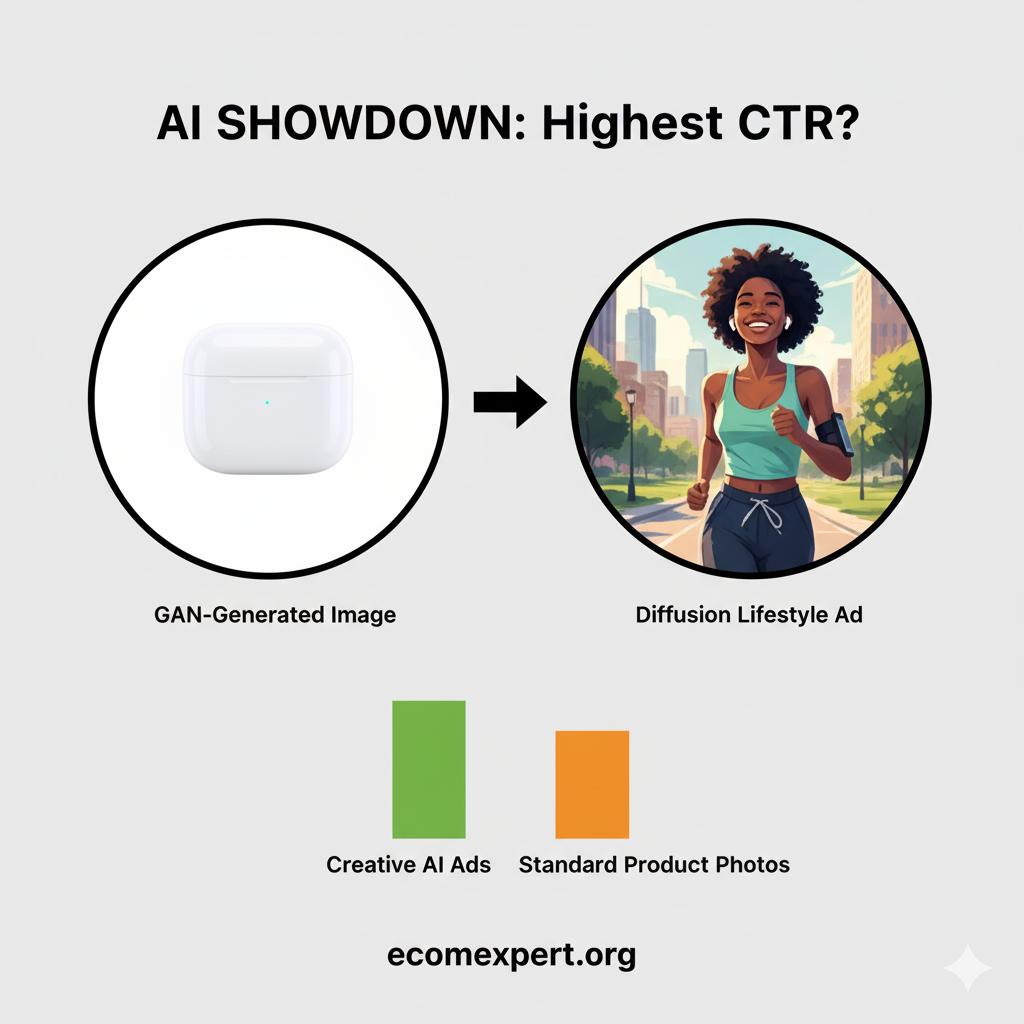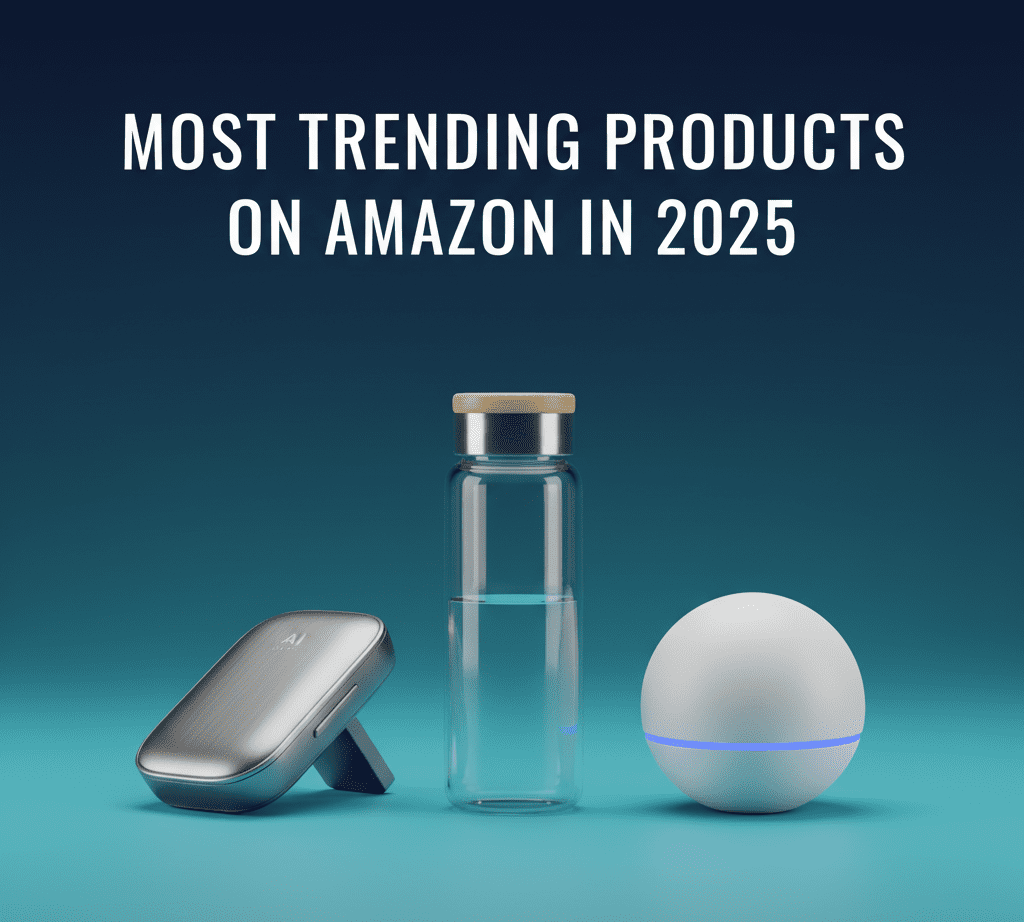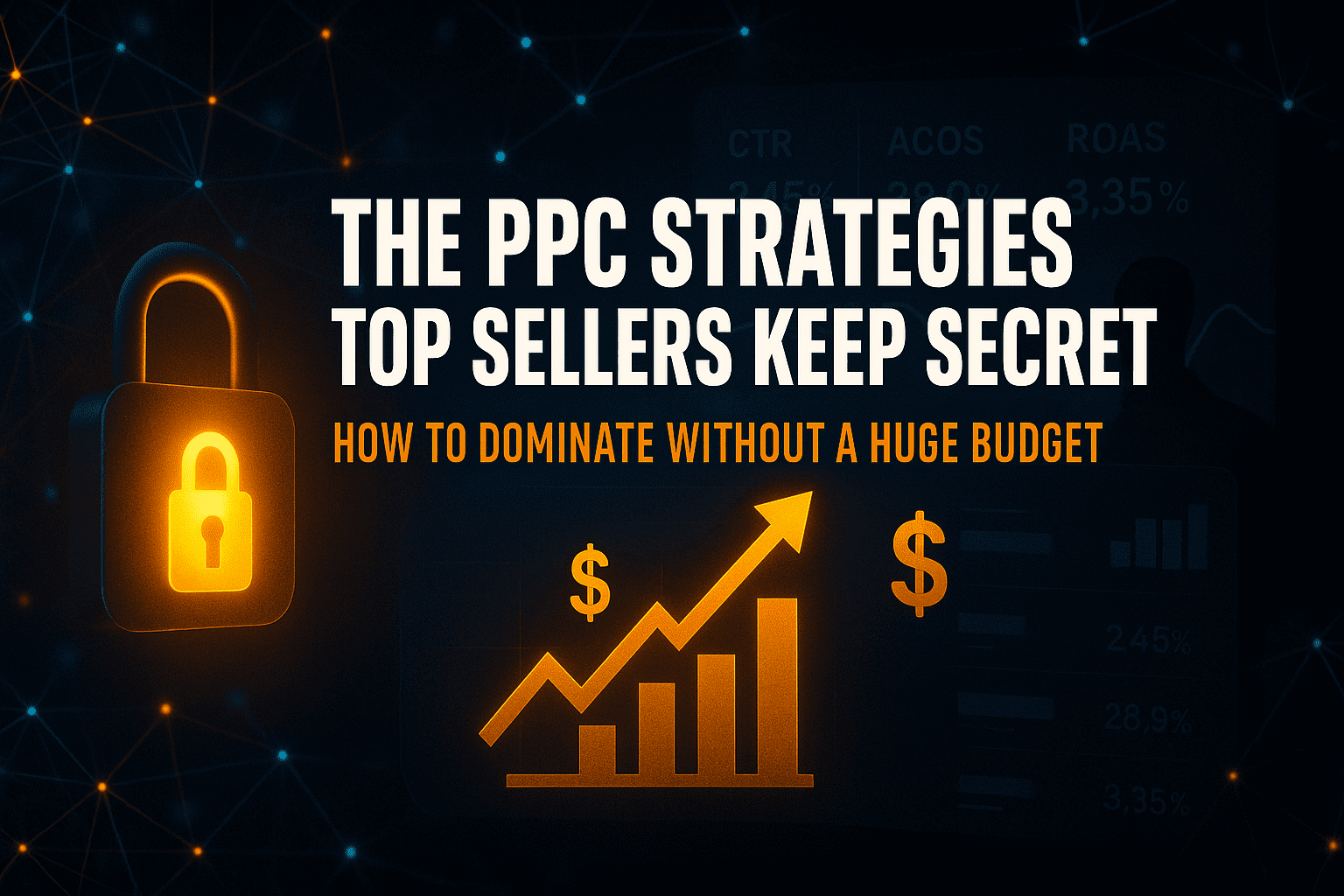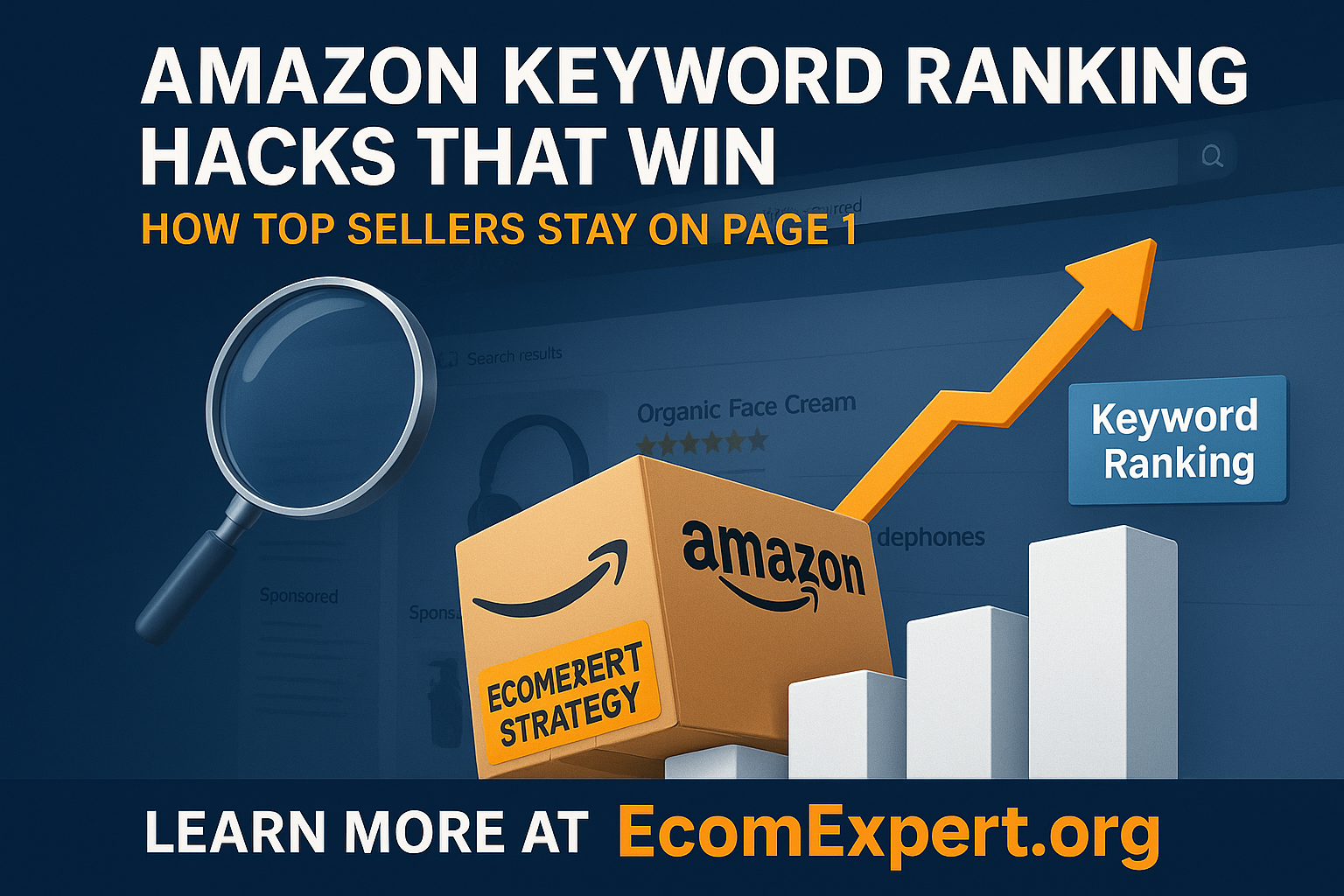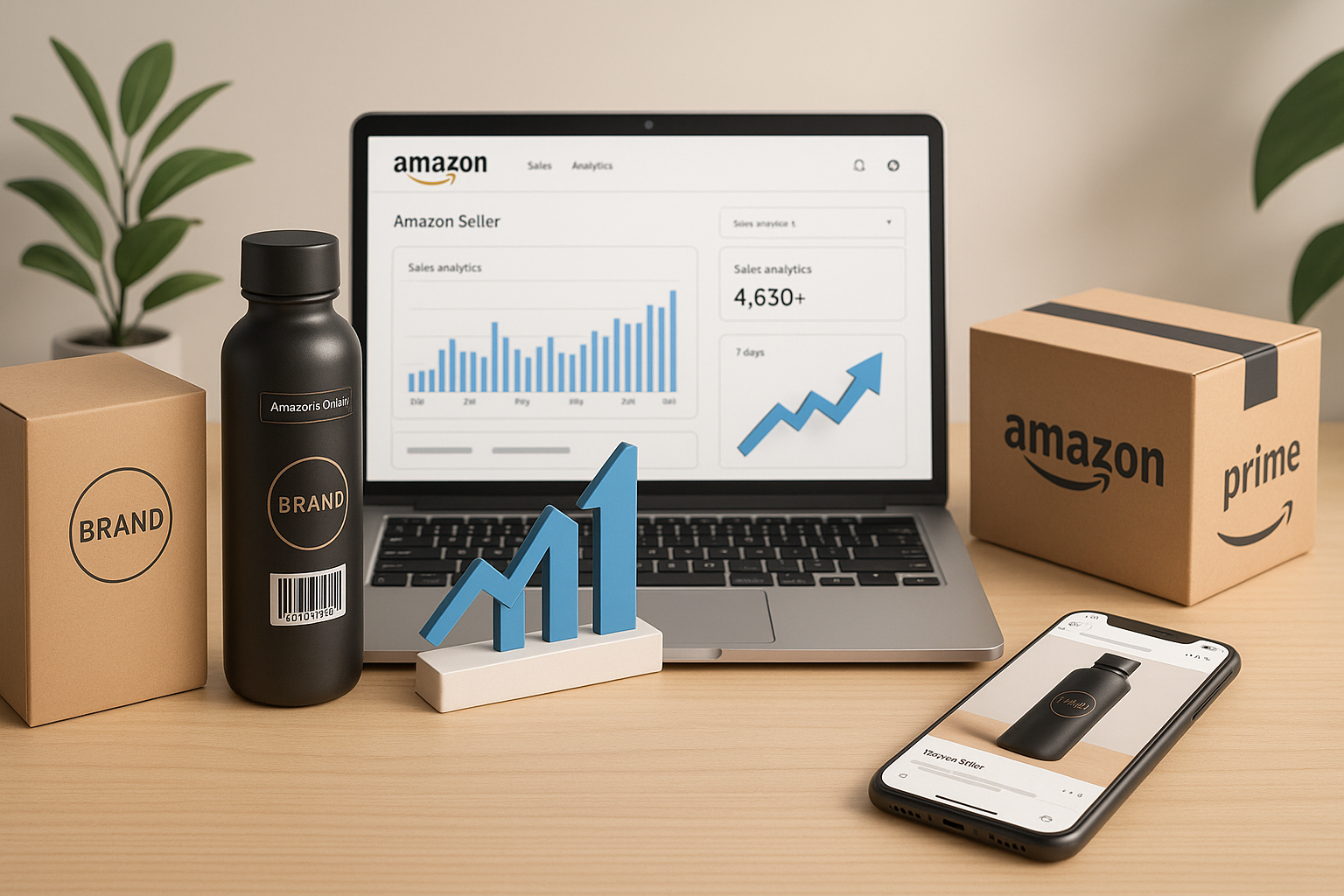
Introduction
The largest year in e-commerce history will be 2025. Entrepreneurs have two primary options when comparing Amazon Private Label and Shopify in 2025: use Shopify to open a store or use Amazon’s private label model to expand their brand to develop a brand.
Although both models present opportunities, most sellers find that Amazon private label outperforms Shopify in terms of profitability, scalability, and brand development.
We’ll explain why Amazon private label is still a more viable business model than Shopify in this blog, along with tips for using it successfully in 2025.
Amazon Private Label vs Shopify:
- Amazon Private Label: You produce your own branded goods, store and ship them using Amazon Fulfillment by Amazon (FBA), and sell directly to millions of Amazon customers.
- Shopify: You create your own website, create your own online store, and use SEO, social media, or advertisements to increase your own traffic.
The distinction is straightforward:
- Shopify grants you autonomy, but it does not generate any traffic.
- Instant access to tools, trust, and traffic is provided by Amazon private label.
Amazon Private Label vs Shopify in 2025: Why Amazon is Better
1. Built-in Customer Traffic
In 2025, Amazon will have more than 2.5 billion monthly visitors. You have instant access to a huge pool of customers who are prepared to purchase when you introduce a private label product on Amazon.
Conversely, Shopify provides you with an empty store. To generate traffic, you need to run advertisements, produce content, or work with influencers. Higher initial marketing expenses result from this.
2. Faster Brand Trust
Customers have faith in Amazon. Your private label brand gains immediate credibility thanks to the Prime badge, Amazon’s return policy, and quick delivery.
You are a brand-new website with no reputation on Shopify. It takes time, reviews, and a significant amount of marketing budget to establish trust.
3. Fulfillment by Amazon (FBA)
Amazon manages returns, shipping, packing, and storage when using a private label. This implies:
- Logistics management is not necessary.
- Prime offers 1-2 day delivery to customers.
- You concentrate on growing your brand.
Shopify sellers have to pay for third-party logistics (3PLs) or manage fulfillment themselves, which can be expensive and inefficient.
4. Easier Scaling
Sales of your Amazon private label product may increase on their own once it ranks for popular keywords. You can scale quickly if you combine this with Amazon PPC.
Shopify needs to continuously invest in advertising in order to expand. Your traffic vanishes if you stop running advertisements. Spending a lot of money on Facebook, TikTok and Google ads is frequently necessary to scale on Shopify.
5. Lower Customer Acquisition Cost
Customers are already looking for your product on Amazon. The cost of running Facebook or TikTok ads to a Shopify store is frequently higher than your cost-per-click when using Amazon PPC.
This increases profitability for Amazon private label sellers by lowering their customer acquisition costs.
6. Built-in Tools for Brand Building
Amazon has made investments in resources that support the growth of private label brands:
- Registering a brand to protect a trademark
- A+ Brand Story & Content for Increased Conversions
- Amazon Storefronts to display your entire inventory
- Advertisements for sponsored brands to increase visibility
Shopify doesn’t come with an ecosystem. Apps, plugins, and marketing tools must be bought separately, which raises expenses.
7. Higher Buyer Intent
Amazon customers are prepared to purchase. They look for terms like “eco-friendly water bottle” or “best private label skincare” with the intention of purchasing immediately.
The majority of Shopify traffic comes from social media or advertisements. Compared to Amazon, conversion rates are significantly lower.
But What About Shopify’s Advantages?
To be fair, Shopify offers a few advantages:
- complete authority over your website and brand.
- the capacity to gather client information for SMS and email marketing.
- No rivals are seated next to you, as in the search results on Amazon.
These benefits do, however, come with slow growth and high marketing expenses. In 2025, Amazon private label is a quicker, safer, and more lucrative way for the majority of new online retailers to get their start.
Amazon Private Label Success in 2025
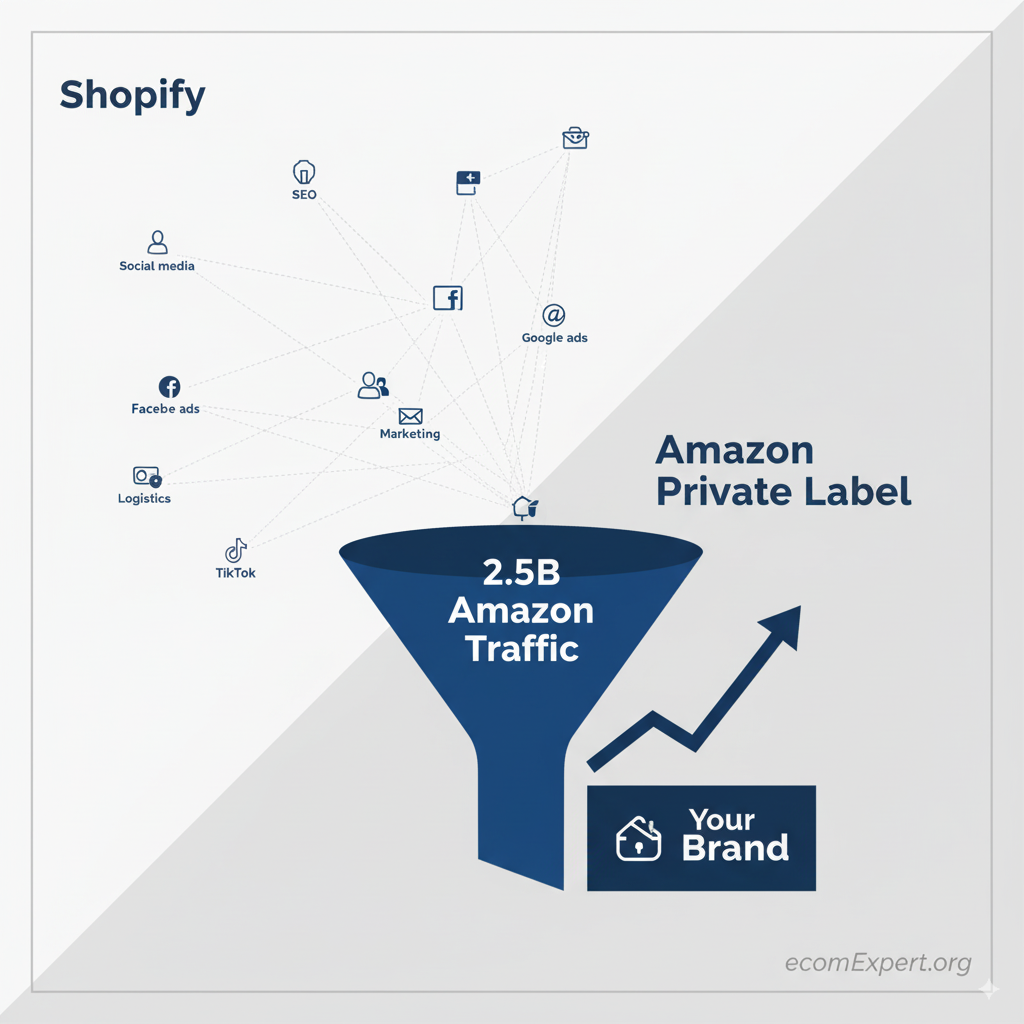
Focus on the following if you want to be successful with private label in 2025:
- Product Research: Find markets where there is a high demand but little competition.
- Differentiation: Include special offers, packages, or logos.
- Listing optimization includes descriptions, bullet points, and titles that are full of keywords.
- Amazon PPC: Astute advertising to improve your ranking.
- Brand Storytelling: you can increase customer loyalty beyond price.
Why Work With Experts
Although it is more difficult, the private label model is superior to Shopify. For this reason, a lot of sellers collaborate with organizations such as EcomExpert.org.
We assist sellers at EcomExpert:
- Improve listings to get better rankings.
- Manage successful PPC campaigns
- Produce top-notch content and expert product photography.
- Create a distinctive brand on Amazon.
Learn more in Shopify’s official guide on selling with Amazon
FAQs: Amazon Private Label vs Shopify in 2025
1. Is Amazon private label better than Shopify?
Indeed. Compared to Shopify, Amazon private label offers most sellers easier scaling, faster traffic, and built-in trust.
2. Is Amazon private label still profitable in 2025?
Of course. In 2025, sellers who are creative, stand out from the competition, and make good use of PPC will prosper.
3. Can I sell on both Amazon and Shopify?
Indeed! When their brand becomes well-known, many sellers move from Amazon private label to Shopify.
4. Which is cheaper to start: Amazon private label or Shopify?
Amazon offers a quicker return on investment due to its built-in customer traffic, but Shopify has lower upfront costs.
Conclusion:
Although Shopify is a fantastic tool for well-known brands, Amazon private label is a better option for aspiring e-commerce business owners in 2025.
- It provides immediate traffic.
- It increases client trust more quickly.
- For hassle-free logistics, it offers Amazon FBA.
- It has lower customer acquisition costs and scales more profitably.
Sellers can create profitable private label brands that rule Amazon with the help of EcomExpert.org, and if they so choose, they can eventually grow to Shopify.
Thus, in the competition between Amazon private label vs Shopify, the clear winner in 2025 is Amazon private label.



